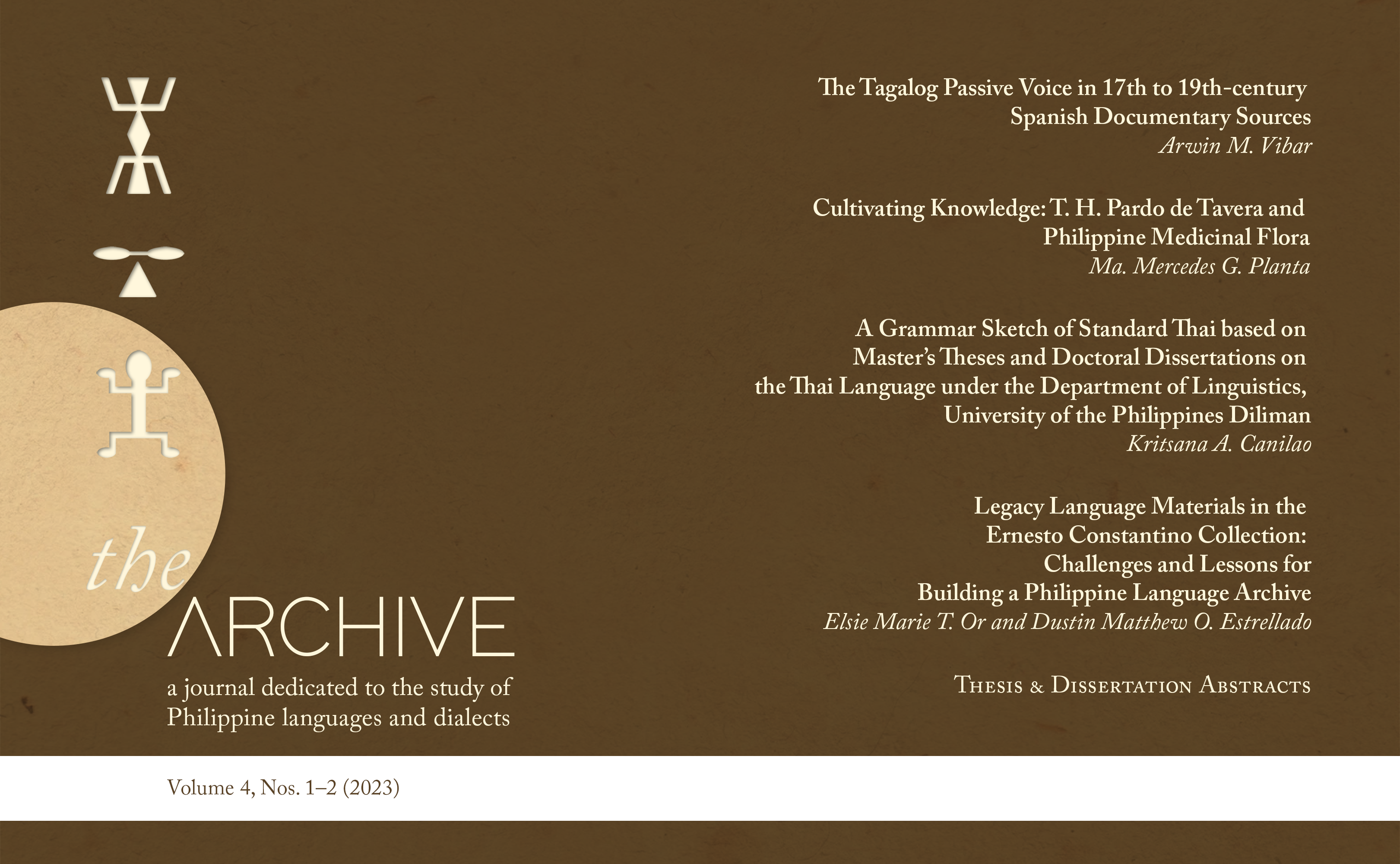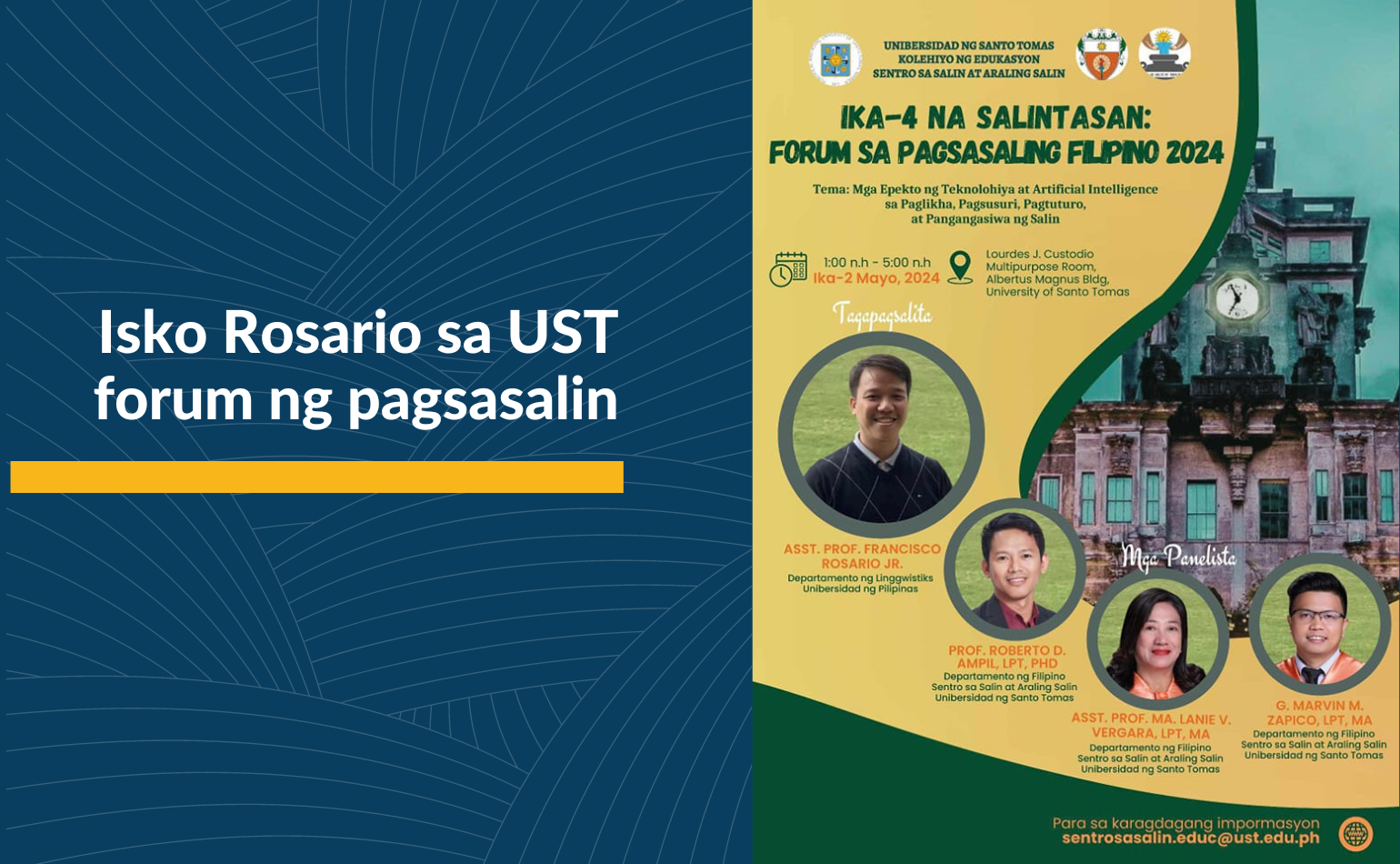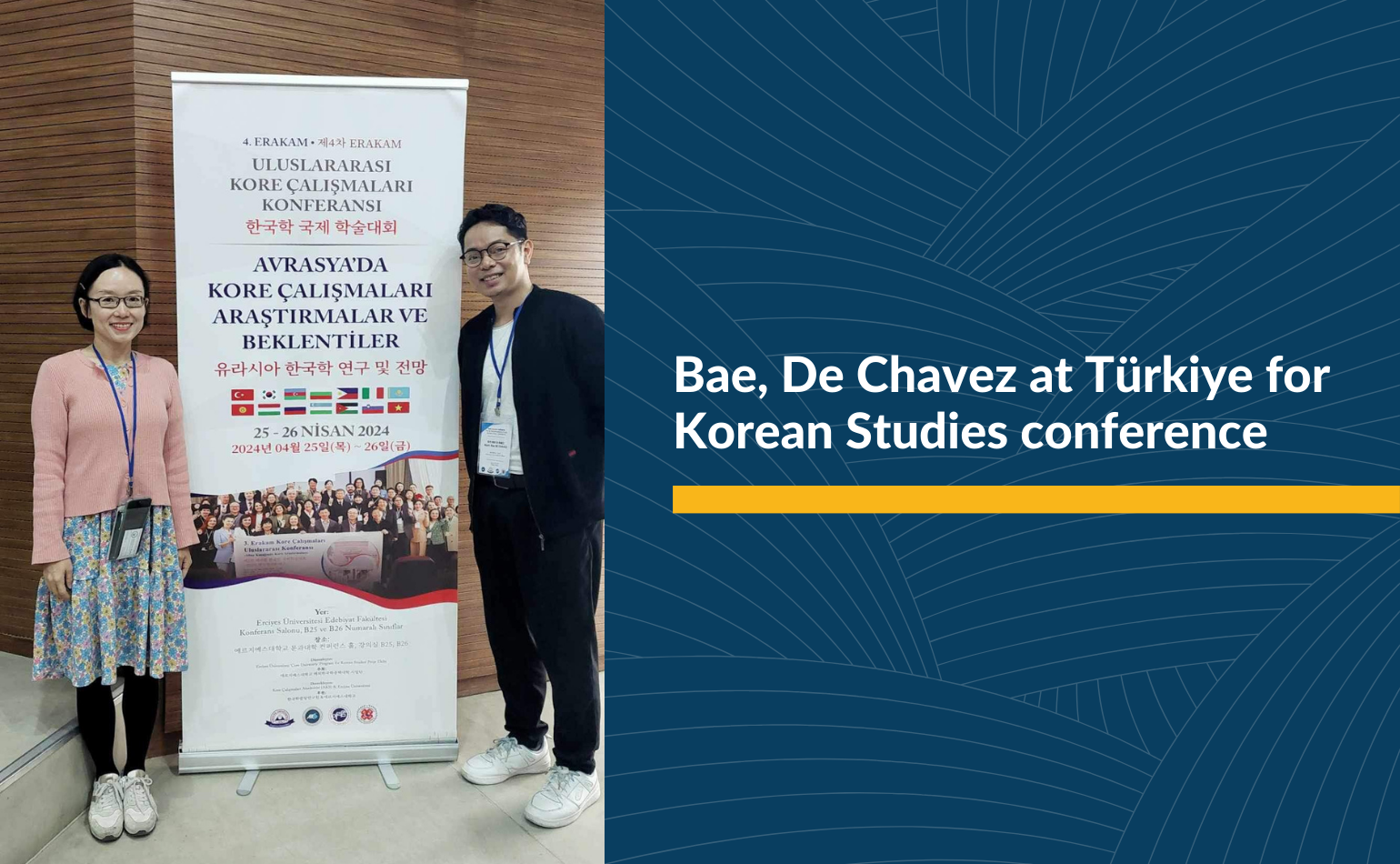
The Archive, the official publication of the UP Department of Linguistics, has released its fourth regular volume. This volume highlights the invaluable role of the archives in preserving, analyzing, and interpreting linguistic heritage in the country. It also puts into perspective the language studies conducted in the country—be it in the more distant past of Spanish occupation and in the more recent past of the Department’s history, as well as its future with the capabilities of digitalization. The issue features four meticulously crafted articles, each stemming from extensive archival research.
The first article is Arwin M. Vibar’s “The Tagalog Passive Voice in 17th to 19th-century Spanish Documentary Sources.” The works of Spanish missionary-grammarians signaled the entry of Philippine language studies into the general history of linguistics. Armed with their training in Greek, Latin, and Spanish, the friars documented Philippine languages for evangelization purposes, which then became valuable early records of the languages. Analyzing four representative works on Tagalog, Vibar pointed out how the priests wrote “groundbreaking” expositions of the complexity and distinctiveness of Tagalog, especially in the treatment of the voice system, with particular attention on the behavior of the passives, which also serves as a “precursor of the contemporary descriptions of this linguistic feature” (Vibar, 2023, p. 2).
The second article is Ma. Mercedes G. Planta’s “Cultivating Knowledge: T. H. Pardo de Tavera and Philippine Medicinal Flora.” This work expands on a tribute lecture to Dr. Trinidad H. Pardo de Tavera, the UP Department of Linguistics’ first chairperson in 1922 and a pivotal figure in Philippine intellectual history. The research focuses on Pardo de Tavera’s seminal publication Plantas medicinales de Filipinas [Medicinal plants of the Philippines] published in 1892 and its rich discussion of precolonial healthcare knowledge and practices. Planta situates Pardo de Tavera’s work as a bridge connecting the past and future, especially with the increasing global interest on local medicinal knowledge.
The third article is Kritsana A. Canilao’s “A Grammar Sketch of Standard Thai based on Master’s Theses and Doctoral Dissertations on the Thai Language under the Department of Linguistics, University of the Philippines.” The author sifted through the works of Thai graduate students who studied formal linguistics under the Department in the 1970s-1990s, She summarized the research works as the Thai Reference Grammar of the 1970s, 1980s, and 1990s. The studies not only provide a view of Standard Thai as used in the 1970s-1990s, but are also a reflection of Philippine linguistic trends of the time and of cross-cultural and linguistic analysis, with the students’ exposure to the grammatical structures of Philippine languages enriching and providing nuance to their research.
The last article is Elsie Marie T. Or and Dustin Matthew O. Estrellado’s “Legacy Language Materials in the Ernesto Constantino Collection: Challenges and Lessons for Building a Philippine Language Archive.” This work documents the current accomplishments in sorting through the legacy language materials in the collection of Ernesto Constantino, former University Professor who is one of the pillars of the UP Department of Linguistics and general Philippine linguistic scholarship. The collection is from the extensive linguistic and ethnographic fieldwork conducted across the different regions of the Philippines over a period of 40 years (1960s-1990s). It contains information on the country’s understudied, threatened, and endangered languages. The authors reflect on the challenges and lessons of creating a Philippine language archive, underscoring the importance of data preservation and repatriation and facilitation of access to linguistic data.
The volume also includes the abstract to Gina Bernaldez-Araojo’s dissertation, “Ang Morfosintaks ng Nawn Preys sa Biri-Waray.” The full work is available in the University of the Philippines library.
Reflecting on the broader significance of archives, editor-in-chief Jem Javier emphasizes their role as custodians of memory, experience, knowledge, and history, offering a glimpse into the past while shaping the present and future of research and scholarship. With the advent of digitalization and other technological advancements, the value of archival preservation becomes even more pronounced, inviting scholars and enthusiasts alike to explore the rich tapestry of linguistic heritage waiting to be (re)discovered. The production of this issue was managed by the team of Assoc. Prof. Jem Javier (editor-in-chief), Asst. Prof. Divine Angeli Endriga (managing editor), Mr. James Dominic Manrique (layout, formatting, and cover design), with administrative assistance of Ms. Victoria Vidal. The latest issue can be accessed via this link.
__________________________________
The Archive was originally published in the 1920s by Otto Johns Scheerer as a repository for working papers of the Department’s graduate students. It now publishes research outputs in three different categories: the Regular Issue, which is the peer-reviewed publication for original works dealing primarily but not exclusively with Philippine languages and dialects; the Special Publication, which is a venue for publishing single, extensive works on Philippine languages, translations, and other similar works; and the Classics series, which reprints monumental works in Philippine linguistics that paved the way for further research in the field and continue to influence current studies on Philippine languages.
The Archive accepts submissions all year round. It is officially hosted by the UP Diliman Office of the Vice-Chancellor for Research and Development, through the UP Diliman Journals Online website, where previous and current issues of the journal may be freely accessed and downloaded. More information about the journal and submission guidelines are available through this link.
Published by Divine Angeli P. Endriga



